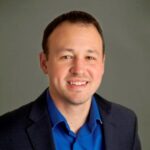
How We Speak Matters: Undoing Stigmatizing Language
Information
Recorded
Learning Objectives
Participants will be able to:
-
Summarize the importance of language and the words we use towards people who are seeking help for problems related to substance use, mental health, gambling, and other areas of need.
-
Identify 5 or more common words/ phrases that are outdated, stigmatizing, and harmful but continue to be present in the helping industry.
-
Explain how using outdated, stigmatizing, and harmful language impacts individuals seeking help.
-
Describe 2 strategies for speaking to, talking about, documenting, and otherwise using language to engage with individuals and provide them with a safe space for healing.
Educational Goal
The educational goal of this workshop is to empower clinicians to recognize stigmatizing language and be able to take action steps towards replacing them with patient-centered language.
Description
How we speak about individuals is how we treat them. The use of language is vital when it comes to prevention, education, treatment, and recovery from those experiencing problems with substance use, mental health, gambling and other areas of need. The use of some language continues to be outdated, not based on clinical application, and can be stigmatizing and even harmful. Using these types of words can impact someone not seeking help, disengaging in services, discouraging progress, and feelings of humiliation and shame. There is a need to incorporate ways to undo stigmatizing words and utilize new language to foster safe environments.
Target Audience
- Counselor
- Marriage & Family Therapist
- Nurses
- Physicians
- Psychologist
- Social Worker
- Substance Use Disorder Professionals
Presenters

Andrew J. Schreier is an Independent Clinical Supervisor, Clinical Substance Abuse Counselor, Licensed Professional Counselor, Board Approved Clinical Consultant, and International Certified Gambling Counselor – II. Mr. Schreier graduated from Ottawa University with a Master’s Degree in Counseling and Bachelor’s Degree in Psychology and Human Services. He is the Director of Clinical Services in Wisconsin & Minnesota for Community Medical Services that provides medicated-assisted treatment for individuals with opioid use disorder. He provides oversight and guidance for all clinical and behavioral health services. Mr. Schreier also works at New Life Resources, Inc. that provides individual counseling/therapy, children and adolescent services, couples/marital counseling, group therapy, and consultation. Experience over the years include working in group home, halfway house, residential, medicated-assisted treatment, and outpatient treatment settings. He presents on various topics related to substance use, mental health, gambling, clinical supervision, ethics, and various other topics to statewide and national audiences. Mr. Schreier is the host of “Talking Addiction & Recovery” Podcast.
Financially Sponsored By
- The Global Exchange Conference - Exchange Events